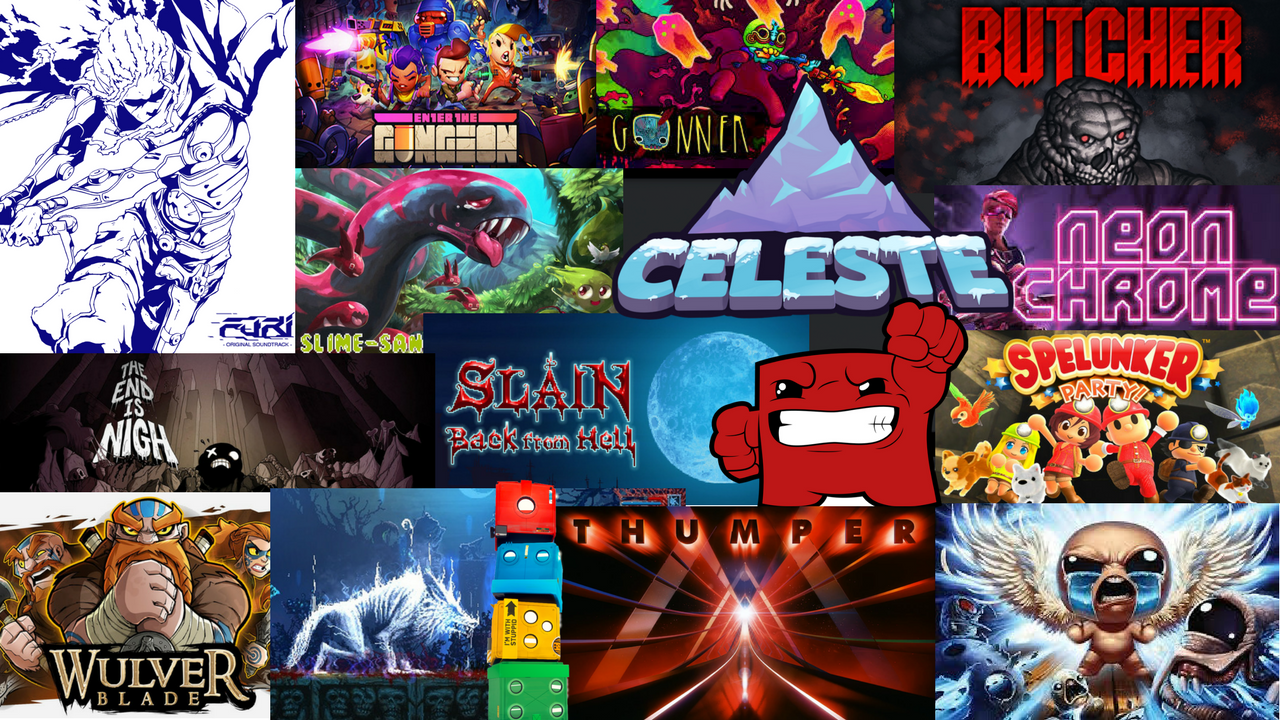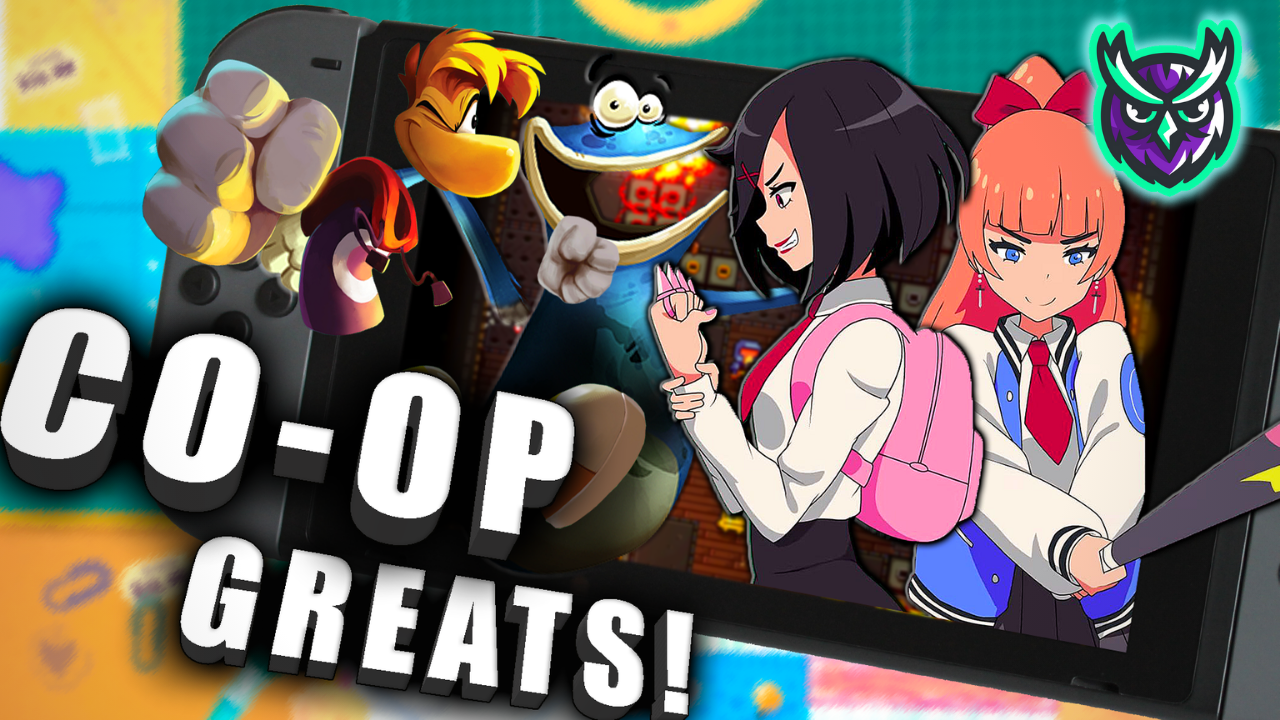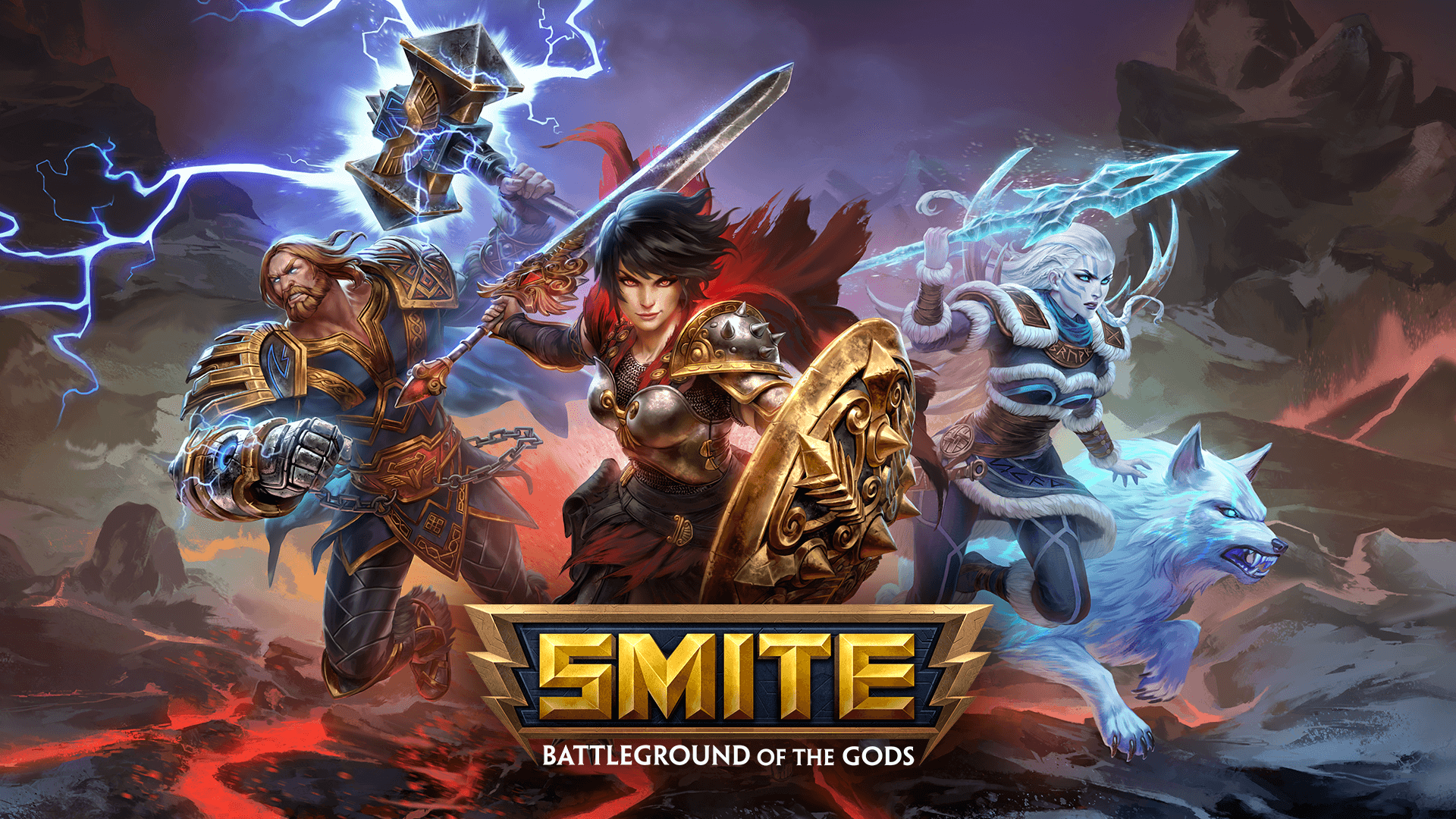Holy Potatoes! We’re In Space?! Switch Review by SwitchWatch
Developer: Daylight Studios
Publisher: Rising Star Games
[/et_pb_text][/et_pb_column][et_pb_column type=”1_2″][et_pb_text _builder_version=”3.19.6″]Release Date: Out Now
Price as of Article: $14.99 USD, £12.99 GBP
Game code provided by Rising Star Games for review
If Holy Potatoes! We’re In Space?! sounds familiar to you, don’t worry. Daylight Studios brought us Holy Potatoes! A Weapon Shop?! last year on the Switch, to relative success. Fast forward to 2019 and we have the next game in their spud-tastic series – they regularly replace words or phrases with potato-related jargon, often to censor would-be profanities, such as “What the spud?” or “Oh my spud!”.
Despite being the next Holy Potatoes! game, the gameplay is significantly different this time around. As the name would suggest, this is a space-bound venture, which focuses around lead protagonists Cassie and Fay as they search for Jiji, their granddad. Hot on their tail is the evil empirical Eclipse, so they must hop between galaxies every 10-20 days to stay out of reach. Each galaxy has its own enclosed mini-story that parodies pop culture in some way. I wouldn’t want to spoil them all, but two early examples are a Han Solo themed story arc and a Ghostbusters parody.
Though this is an interesting way of keeping the story aspect fresh and unique, the individual stories are often wrapped up in 5 days or less, so large portions of the game will often be spent without any story to push you forward. You can leave for next galaxy at any time, though, but I found it was often beneficial to stick around and scavenge more supplies.
[/et_pb_toggle][et_pb_toggle title=”Gameplay” open=”on” _builder_version=”3.19.6″ use_border_color=”on”]As I mentioned, you have a limited number of days before you have to leave each galaxy and everything you do costs you days. Every journey to a new planet costs a day – plus some fuel, a limited resource that keeps you from exploring too far – and exploring will take up a day, too. This system means you need to be selective with how you spend your time, though I often found it didn’t impact me too heavily. You need to make sure you leave the galaxy on time, but there were always enough days left after I completed that galaxy’s story for me to explore freely.
A large portion of your playtime will be spent exploring planets, which boils down to two things: spaceship battles and scenarios that force you into a decision. When you decide to spend a day exploring a planet, it will randomly generate a number of battles or scenarios for you, sometimes you’ll have all battles but I haven’t experienced a planet that had none. The scenarios are very basic here, you’re usually given a piece of text along the lines of “There’s something strange here, what should we do?”. You can choose to investigate it and possibly find useful materials or blueprints at the risk of it blowing up in your face, or avoid the scenario altogether, sometimes at the cost of something minor such as fuel or a small sum of money.

The turn-based ship battles are the meat of your potato adventure, though. You’re given a small amount of energy every turn and each weapon you have costs a certain amount to fire. You can choose to target an opponent’s hull or weapons individually, though certain weapon types, like shrapnel and rockets, will cause splash damage to everything. I found this incredibly strong and would often forgo other weapon types, such as lasers, to deal chunks of damage to everything at once.
Both you and your enemy will have a shield that can be positioned to defend your hull or one of your weapons each turn, though the AI left this lazily defending the hull in most scenarios, despite my proclivity to target their weapons. There’s a significant advantage to doing this; not only does it lessen the damage you’ll take every turn if you can reduce your opponent’s chance to attack you, but it eventually leaves them stranded. When you knock out all of their weapons, they will attempt to pay you for their escape. You can try to destroy them anyway, but it’s a simple way of ending the fight early while still getting a hefty wad of currency. I loved this system, though it does get a bit repetitive after a while.
The rest of your time is predominantly spent upgrading and managing your crew and quarters. Each galaxy has a hub planet where you can buy and sell weapons for your ship, resources to build said weapons, recruit new crew members, and upgrade your ship. In between trips to the hub planet, you’re still able to manage the ongoings aboard your ship. You can task your crew with learning new skills, crafting new weapons, or upgrading your universal skills. This aspect of the game was less enticing to me than the combat, but it’s a nice filler that helps to keep the game from being too linear.
[/et_pb_toggle][et_pb_code _builder_version=”3.17.6″] style=”display:block; text-align:center;” data-ad-layout=”in-article” data-ad-format=”fluid” data-ad-client=”ca-pub-5661714653949151″ data-ad-slot=”5669732186″>[/et_pb_code][et_pb_toggle title=”Audio” open=”on” _builder_version=”3.19.6″ use_border_color=”on”]The audio is what you’d expect from a game that bridges multiple genres; dramatic and punchy during combat, relaxed and mellow during the management-sim portions. The sound effects complemented this well at all times, though I’m still waiting for the audio in a Switch game to ‘wow’ me. The audio works well, and I wouldn’t mark it down for any reason, but it’s also unlikely to shock you or evoke grand emotions.

Everything about Holy Potatoes! We’re In Space?! is a treat for the eyes. The simplistic characters, the detailed ships, and the metallic, space-themed menus all pop in their own right. Just as the gameplay is a brilliant combination of different genres, everything fits together visually, despite tying multiple art styles together. In terms of performance, the Switch handled the game very well, without any framerate drops or stuttering.
At £12.99 GBP or $14.99 USD, you’re getting good value for your money with Holy Potatoes! We’re in Space?!. There are 15-20 hours of fun to be had here, which I feel is good for such a charming, well-built Switch port. The game is almost 2 years old, however, which is the only reason I’d hope for less.
With that said, the game was previously 67% off on Steam. At £3.95, with an arguably better control scheme, it’s an absolute steal, so it might be worth waiting for another sale. If you want the portability of the Switch version, or don’t own a PC, then I still recommend buying it for full price on the Switch, but I always make it a goal to ensure readers spend their money efficiently.
Pros
[/et_pb_text][et_pb_blurb use_icon=”on” font_icon=”%%47%%” icon_color=”#ffffff” use_circle=”on” circle_color=”#5bd999″ icon_placement=”left” _builder_version=”3.19.6″]Humorous writing
[/et_pb_blurb][et_pb_blurb use_icon=”on” font_icon=”%%47%%” icon_color=”#ffffff” use_circle=”on” circle_color=”#5bd999″ icon_placement=”left” _builder_version=”3.19.6″]Engaging multi-layered gameplay
Cons
[/et_pb_text][et_pb_blurb use_icon=”on” font_icon=”%%47%%” icon_color=”#ffffff” use_circle=”on” circle_color=”#e6567a” icon_placement=”left” _builder_version=”3.19.6″]Can get repetitive
[/et_pb_blurb][/et_pb_column][/et_pb_row][/et_pb_section]








